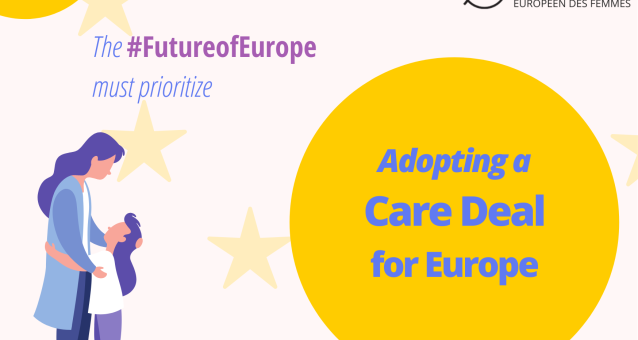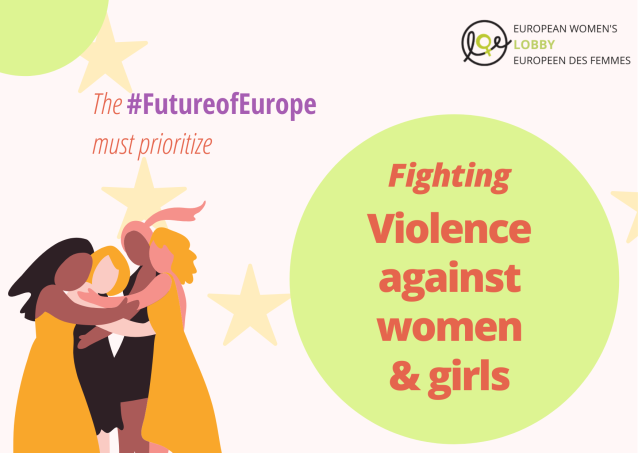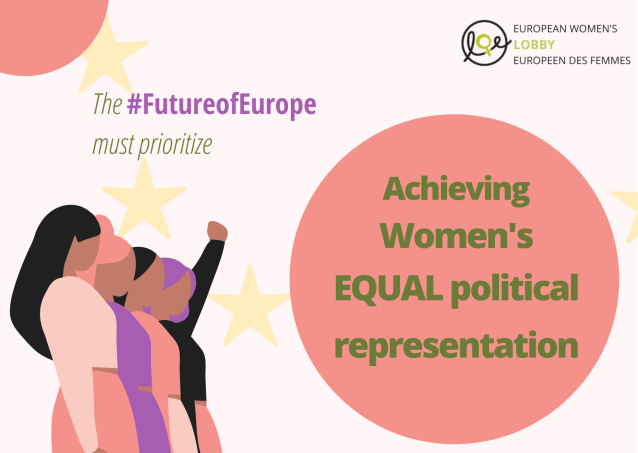Advancing women’s rights through the Conference on the Future of Europe

[Brussels, April 2022] The Conference on the Future of Europe is a defining moment to reassert the EU’s strong and unconditional commitments to women’s rights. The European Women’s Lobby sees the Conference as a crucial opportunity to foster ambitious measures to frame a feminist Europe. That’s why our Advocacy Paper calls on the European Parliament to draft a resolution that addresses women’s interests and needs as well as demands concrete follow-up actions to truly advance women’s rights in the EU.
Opened in Spring 2021, the Conference on the Future of Europe is nearing its end with the final Plenary taking place end of April 2022. As the European Citizen’s Panels have published their recommendations and the European Parliament is working on its resolution on the Conference, it is essential to ensure this exercise does not turn out to be a missed opportunity for women in the EU. The European Women’s Lobby highlights how Members of the European Parliament could ensure that women’s rights are a priority in the future of the EU and that the CoFoE contributes to advancing this goal. In particular by:

● Ensuring that EU instruments and legislation on Violence Against Women and Girls (VAWG) do not work in silos;
● Laying the foundation for a feminist economy of wellbeing through the adoption of a Care Deal for Europe;

● Stressing the importance of women’s equal political representation and participation in decision-making;
● Effectively establishing gender mainstreaming in all the activities of the European Union, including in the recommendations on climate change and the environment;
● Ensuring support for women’s rights organisations, including financial, as they provide essential services and have been severely impacted by Covid-19.
Read the full Advocacy Paper  .
.
The European Women’s Lobby urges the EU representatives to address the CoFoE’s current shortcomings on women’s rights and give substance to the EU treaties’ obligations on equality between women and men and on gender mainstreaming.




